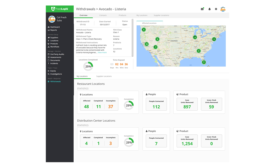Home » Keywords: » mock recalls
Items Tagged with 'mock recalls'
ARTICLES
How to Conduct a Mock Recall
Mock recalls are routine exercises conducted by manufacturers, processors, distributors and other various trading partners in the supply chain to assess their recall procedures and responsiveness.
March 4, 2014
Get our new eMagazine delivered to your inbox every month.
Stay in the know on the latest food and beverage manufacturing markets.
SUBSCRIBE TODAYCopyright ©2024. All Rights Reserved BNP Media.
Design, CMS, Hosting & Web Development :: ePublishing






